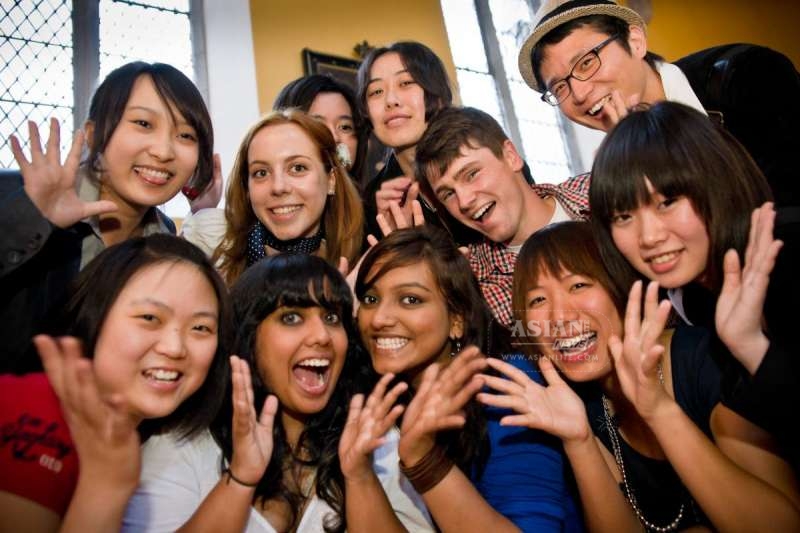International students should be removed from the government’s net migration target. It is clear that international students are not long-term migrants. They come to the UK, study for a period, and then the overwhelming majority go home after their studies…reports Asian Lite News
 Sir Leszek Borysiewicz, the head of Cambridge University, says it is “ludicrous” to include overseas students in UK migration targets.
Sir Leszek Borysiewicz, the head of Cambridge University, says it is “ludicrous” to include overseas students in UK migration targets.
He was speaking at the Leadership Foundation for Higher Education in in London. Sir Leszek recently visited India to attract more students. The changes in the visa rules, especially the post-study visa, have affected thousands of Indian students. They are now prefer to go to US, Canada, New Zealand or Australia for studies.
Sir Leszek Borysiewicz warned against creating a negative perception that overseas students are not welcome, BBC reported.
He warned that Cambridge had to compete in a highly mobile, global market for the best staff and students.
Nick Hillman, director of the Higher Education Policy Institute, called for the government to carry out a full analysis of the economic costs and benefits of recruiting more overseas students to the UK.
Nicola Dandridge, chief executive of Universities UK, backed the calls by the head of Cambridge for overseas students not to be included in targets to reduce migration.
“International students should be removed from the government’s net migration target. It is clear that international students are not long-term migrants. They come to the UK, study for a period, and then the overwhelming majority go home after their studies.
“While international students in the UK continue to be caught up in efforts to bear down on immigration, it will feed the perception internationally that the UK is closed for business and does not welcome students,” she said.

Sir Leszek said that the potential economic gains for the UK from recruiting more overseas students were being “sacrificed at the altar of political expediency”.
The Cambridge University vice-chancellor said that in advanced research: “There are no prizes for coming second.”
But he warned that the competitive edge, provided by being able to recruit from the best global talent, was being jeopardised.
Difficulties with recruiting overseas staff and students had become “one the biggest threats facing UK universities”, said the Cambridge head.
Sir Leszek, speaking in London at the Leadership Foundation for Higher Education, said there needed to be less “negativity” in the debate about both immigration and recruiting overseas students.
Postgraduate students were the “engine room” of university research – and he said about 60% of postdoctoral researchers at Cambridge were from overseas.
These were “highly mobile and ambitious” students and “if we make it difficult or unattractive for them to work with us, they will move elsewhere”.
The head of Cambridge said migrants “revitalised economies” and brought innovation, but this was being lost in the debate around immigration.
He warned that including overseas students in net migration targets was “short-term and short-sighted”, when a long-term strategy was needed.
Sir Leszek also spoke of his own experience as a child of Polish migrants who came to live in Wales after World War Two – and how he had been able to take advantage of the educational opportunities available to him.
He was able to study medicine and eventually became head of the Medical Research Council and received a knighthood for his work in vaccine research. The Cambridge vice-chancellor said it had taught him that “access to education should be universal”.
A spokeswoman for the Department for Business, Innovation and Skills said: “We continue to welcome all genuine international students coming to study at bona fide UK institutions. There is no cap on students who can come to study in the UK and no intention to introduce one.”
The department said the UK has more than 435,000 international students, “which means that nearly one in five students in the university population is from overseas”.